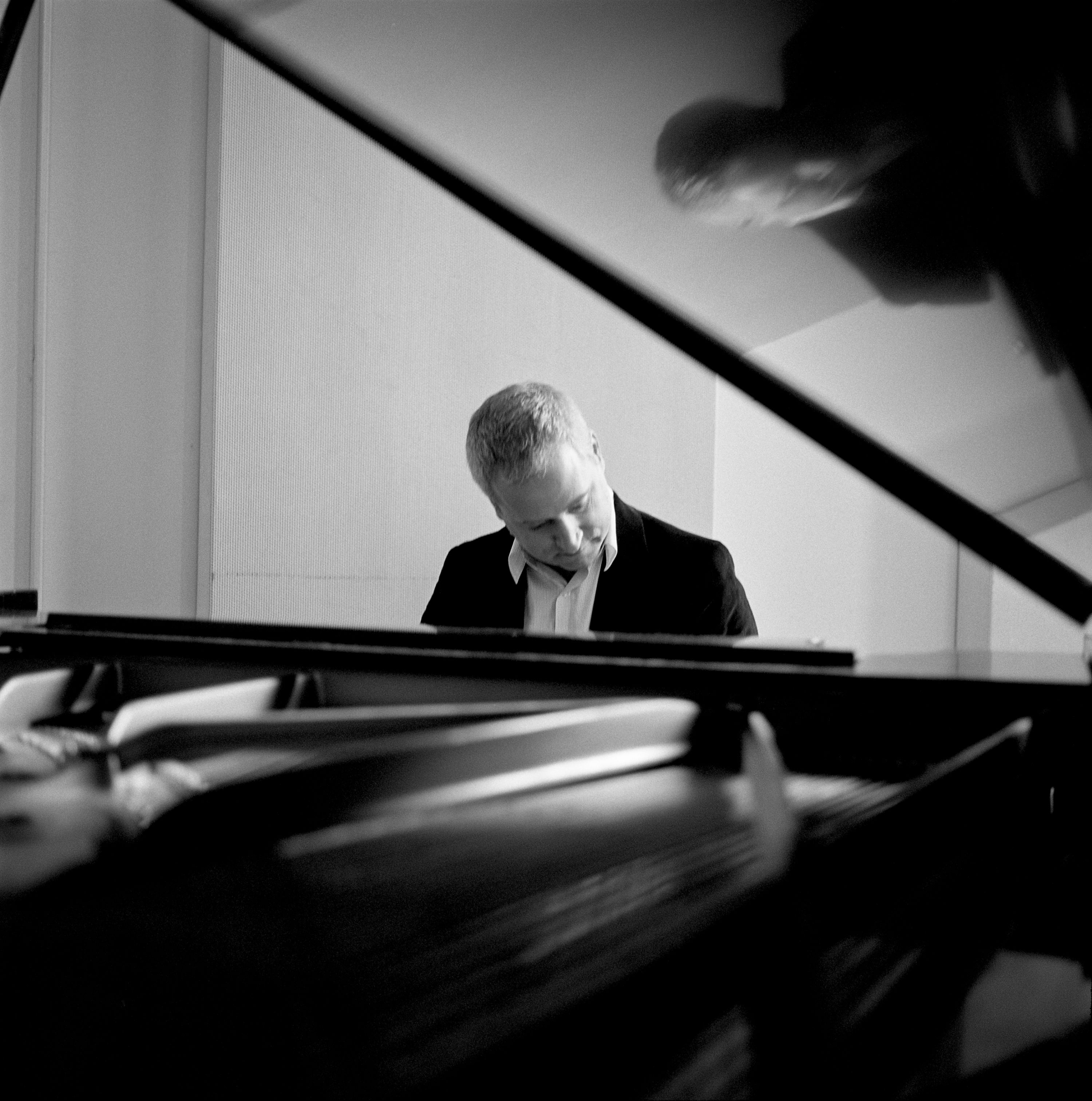Jeremy Denk has a lot of irons in the fire. He’s a concert pianist, currently touring in support of his Goldberg Variations of J.S. Bach. He’s also an accomplished writer, recently securing a deal with Random House to expand one of his New Yorker essays, "Every Good Boy Does Fine" into a book. And oh yeah, the MacArthur Foundation just named him a fellow in its latest crop of geniuses. Denk, who performs at the Symphony Center on Sunday, October 13, took a few minutes to chat.
You’re a MacArthur genius now. Other than having journalists ask you about it all the time, how has your life changed?
Jeremy Denk: Obviously I’m happy. I’m in a slightly thrilled state. But I’m in the middle of a very busy concert season. I’m obsessively practicing the same way I was before. I’m engaged in so many projects, there isn’t even that much time to bask in the pleasure.
What will you do with the freedom the MacArthur award affords?
JD: It will give me more space to learn new pieces and commission new pieces. And pursue some of the writing projects. I feel very guilty toward my blog, which has received a tremendous amount of neglect. I miss some of the casualness of writing on it. I hope to return to it with more love.
It’s a funny coincidence to have the word “genius” tarred on your forehead at the same moment you’re taking the Goldberg Variations on tour—a work closely associated with genius.
JD: They’re so [frequently] played. There are so many iconic recordings, [such as] the recordings by He Who Shall Not Be Named. [We have no such compunction. He’s talking about Glenn Gould. —Ed.] It’s so hard to imagine entering that piece with a fresh perspective. It’s like retelling a really well-known story.
Even though there’s so little space for interpretation, you undertook the challenge anyway?
JD: I talk about how I never wanted to play the Goldbergs. Now I’m sort of like Goldbergs Anonymous. I’m a huge Bach nut, so it’s natural for me. It’s such an enormous piece, such a happening. It requires so much attention and care and feeding, like a plant. It has sort of insidiously become part of who I am.
I imagine it’s very pleasurable to have them all worked up. I’m a living-room pianist, and I think playing a Bach work you know really well is like taking a ride in a well-built machine.
JD: “Ride” is a good word for it—the motoric rhythm, the inevitability of the bass line, you keep riding the same harmonies to totally different destinations in different speeds and different styles. It does feel like a ride.
I know you’re shying away from talking about Glenn Gould, but what similarities or contrasts will fans of Gould’s recordings see in your performance?
JD: I haven’t listened to either of them in a long time. That’s partly intentional. His personality is so huge. I don’t want to define myself negatively in relation to anyone’s performance.
Fair enough. I think you’re stuck with a certain amount of comparison, though, especially you’re now a step closer to the Gould mystique—possibly genius, possibly crazy.
JD: Well, I’ve certainly got the crazy part down. It’s hard to compete with Glenn in terms of craziness, though. There’s an aspect to this piece that’s obsessive. [As a theme and variations,] it’s born of an obsession. That’s a decent word to use. It’s a mania, but it’s a very beneficent mania.
How does your performing connect with your writing?
JD: They’re both forms of thinking about music, hopefully applying a kind of creative or unexpected [spin]. I put a big premium on being imaginative in one’s thinking about music. I guess I never felt a strong distinction. I’ve been a huge reader for a long time, and truth always seemed somewhat musical. Metaphors jangle against each other in unexpected ways, the same way as harmony. Or music as narrative or storytelling. Often it happens I’ll write a blog, and it will crystallize a thought I had about a piece. They’re outlets one for the other. If I’m tired of talking about things, it’s best to play them. If I’m tired of playing, it’s best to speak. It’s like a giant form of therapy.
What other projects do you have going now?
JD: I have a few memorial concerts. In November, I’m touring a Mozart concerto with the San Francisco Symphony. I have some of December and January to practice and write. I’m sure there are a few recitals scattered around that I’ve forgotten about. And obviously the libretto [for an opera with the composer Steven Stucky, scheduled to premiere at the Ojai Music Festival in 2014]. It’s based on Charles Rosen’s [scholarly work] The Classical Style. It has strong comic elements, with some of the most wonderful passages about music being set to music. It’s a hyper-meta exercise.
What else is there that I didn’t ask you about?
JD: Is that not enough?
Jeremy Denk performs at Symphony Center on Sunday, October 13.



